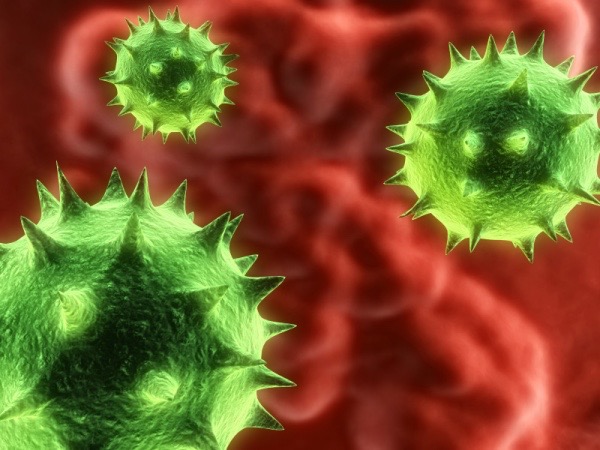Noroviruses, a group of viruses, are responsible for causing an illness called gastroenteritis in which your intestines and stomach become inflamed. You experience abdominal pain, diarrhea, and vomiting within 24-48 hours of exposure. It may take 1-3 days to recover completely but you usually require no treatment. Sometimes, older adults, infants, and people with underlying conditions develop serious complications due to diarrhea and vomiting and require medications. It is, therefore, important to protect yourself from becoming infected, especially in closed, crowded environments, such as nursing homes, hospitals, and cruise ships.
Is Norovirus Airborne?
Yes, norovirus is airborne and can spread through vomit. There are virus particles in the vomit of an infected person and these particles can infect others as well. It is also called "the cruise ship" virus because of several outbreaks at sea.
When an infected person vomits, the aerosolized virus particles are released and enter another person's mouth. When swallowed, these particles can cause infection. These airborne particles are capable of infecting nearby surfaces such as door handles and tables. Once there, norovirus can sit on those surfaces for weeks.


Other Ways of Transmission
Is norovirus airborne? The answer is yes. You may be wondering if there are other ways of transmission as well. The truth is that norovirus is highly contagious and you can become infected by eating contaminating food or drinking contaminated water. Touch a contaminated surface and then touching your mouth with the same hand may also make you infected. The problem is that noroviruses can withstand cold and hot temperatures and some disinfectants as well, and that is why it is quite difficult to wipe them out completely.
What Increases Your Risk?
You are at a greater risk of becoming infected if you:
- Have a weakened immune system
- Live in a place where food or water supply is contaminated
- Live with a child who attends a childcare center or preschool
- Stay in resorts, hotels, cruise ships and other closed, crowded places
What to Do If You Have Norovirus
How healthy your immune system usually determines how long it takes to recover completely from norovirus infection. Here are some steps to take when you become infected or experience vomiting and diarrhea:
- Avoid dehydration and drink plenty of fluids to replace the fluid lost from diarrhea and vomiting. Along with water, you can take soup and fruit juices as well – just avoid fizzy drinks and do not give fruit juice to children.
- Take paracetamol if you have aches, fever, or pains.
- Eat plan foods if you feel hungry – stick to rice, soup, bread, and pasta only.
- Take rehydration drinks if you notice signs of dehydration, such as a dark urine or dry mouth.
- Take antiemetic or anti-diarrheal medications to treat your diarrhea – do not give these medications to your children without your doctor's advice.
- Take plenty of rest and give your immune system some time to treat the infection.
When to Get Medical Advice
In most cases, you do not require any medical treatment. Simple homecare measures work just fine. Moreover, antibiotics are not going to help anyway because you have a viral infection. However, you may need medical attention in certain cases. For instance:
- When your baby has passed more than six watery stools within a day
- When your baby feels less responsive and has mottled or pale skin
- When there are symptoms of dehydration, such as dizziness, dark urine, etc
- When you or your child has bloody diarrhea
- When you notice no improvement in symptoms after a few days
How to Prevent Contracting Norovirus
 Is norovirus airborne? Yes norovirus is airborne and highly contagious too. It means you should take steps to ensure you do not end up infecting others around you. At the same time, you need to pay attention to personal hygiene to ensure you do not become infected in the first place. Here are a few steps to take to prevent contracting norovirus.
Is norovirus airborne? Yes norovirus is airborne and highly contagious too. It means you should take steps to ensure you do not end up infecting others around you. At the same time, you need to pay attention to personal hygiene to ensure you do not become infected in the first place. Here are a few steps to take to prevent contracting norovirus.
Be sure to wash your hands thoroughly, several times a day. You also need to ensure you are washing your hands properly. Here is what you should do:
- Wash your hands with lukewarm water and use a mild soap.
- Be sure to wash your hands for no less than 20 seconds.
- Properly rub backs of hands, palms, webbing of fingers, knuckles to palms, wrists, and thumbs.
- Avoid scrubbing too hard and stay away from harsh chemicals or soaps or you will end up damaging your skin that leaves you more vulnerable to infections.
- Take your time to rinse well and use a paper towel to turn off taps. Use another paper towel to open the door and then discard the towel.
- Do not forget to wash your hands properly before eating and after using the rest room.
Here are some other prevention tips that will help prevent infections:
- Do not eat contaminated food and avoid contaminated water at all cost.
- Spend some time washing fruits and veggies before you eat them.
- Be sure to eat seafood only after cooking it thoroughly.
- Always dispose of fecal matter and vomit with care to ensure you do not end up spreading the virus.
- Use a chlorine bleach solution to disinfect virus-contaminated areas. Wear protective gear when disinfecting.
- Take plenty of rest and stay home for a few days after your recovery – you may still be contagious and spread the infection unknowingly.
